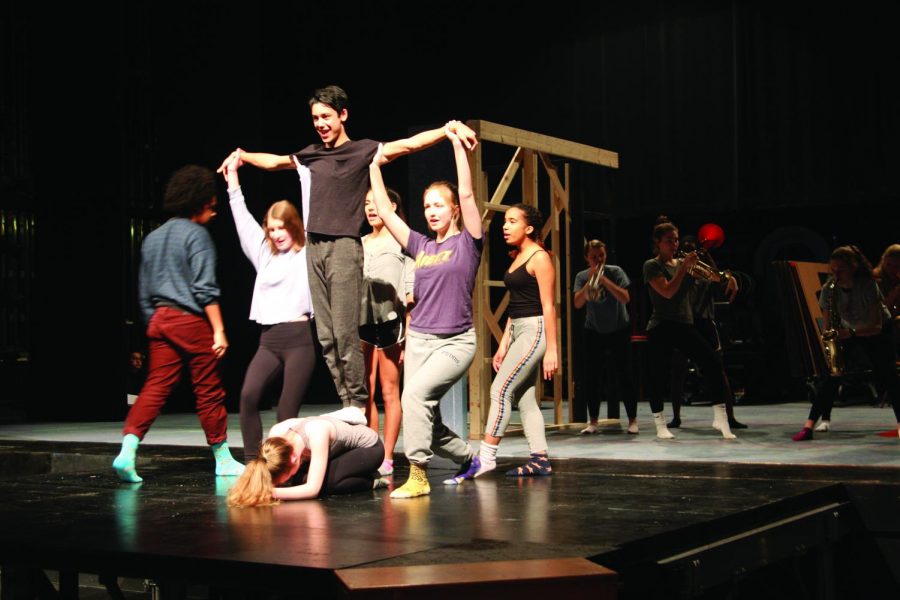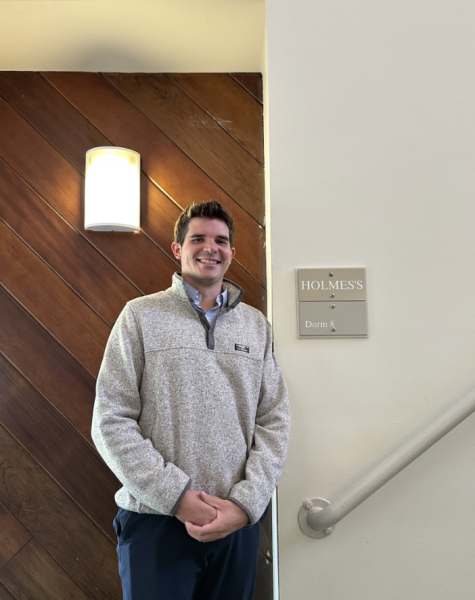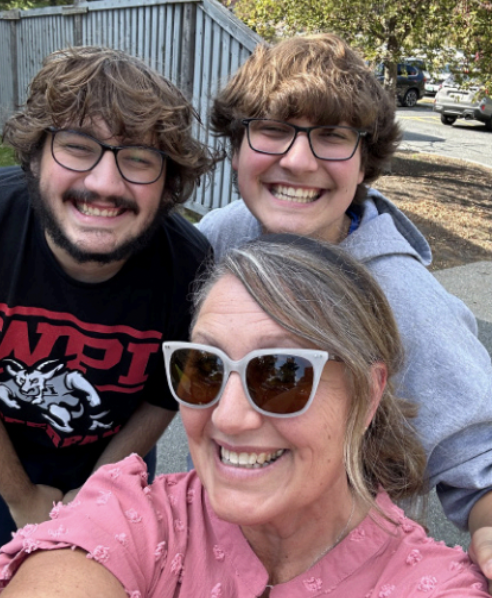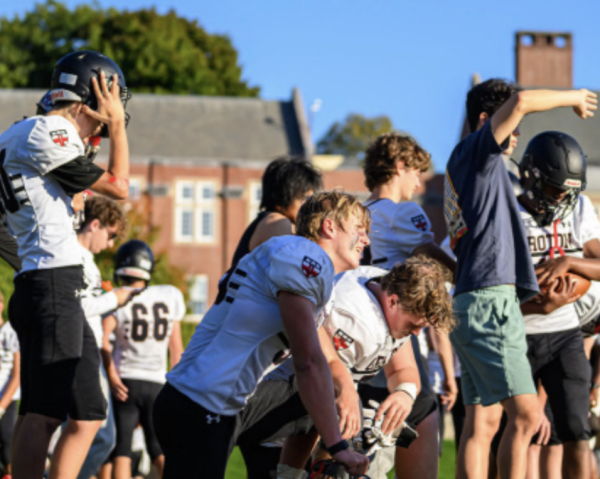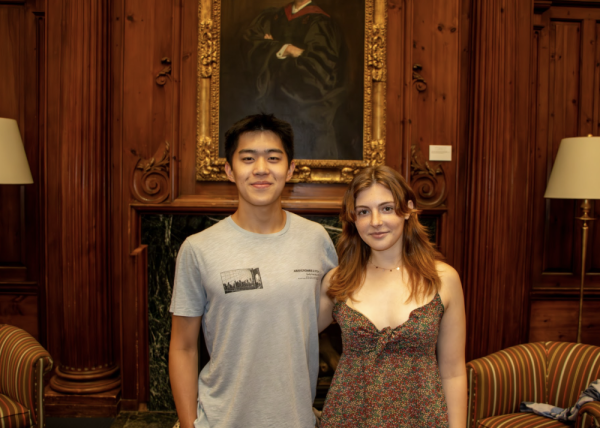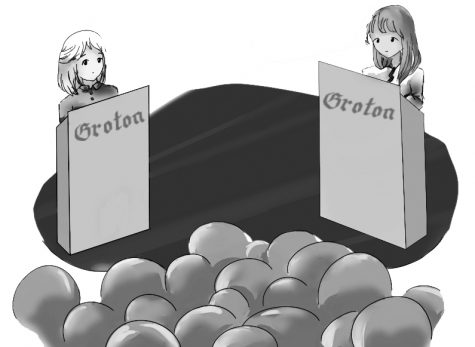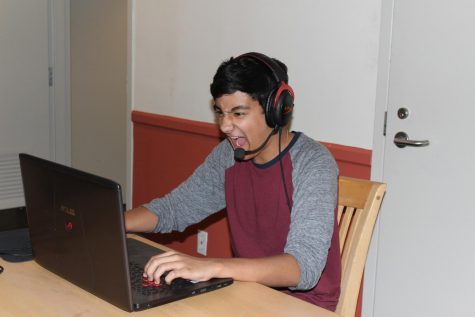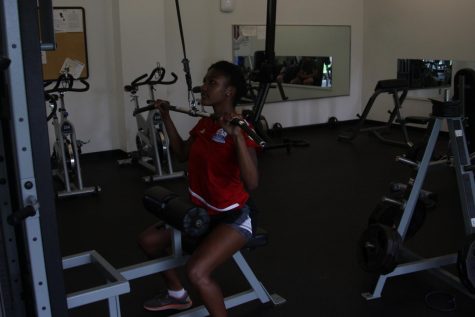The Social Significance of Cabaret
This winter, Groton’s theater program will be producing Cabaret. The show follows Sally Bowles (Lily Cratsley ‘19), an ignorant expatriate, on her quest for fame in the tawdry Kit Kat Klub as well as her relationship with Cliff Bradshaw (Christian Carson ‘18), a visiting American novelist. Meanwhile, a Master of Ceremonies (Julien Alam ‘19) oversees the Kit Kat Klub and, by extension, the world of the show.
With a large cast, Cabaret is a perfect show because it allows many students to shine on stage, and also “makes social commentary,” according to Director of Theater Laurie Sales. Primarily, Laurie believes that the show makes the audience think about their values and privileges that come with being in a place that allows the expression his or her values. For example, the show centers around the Kit Kat Club, a seedy Berlin nightclub with dancing cabaret girls on call. However, Laurie says that, while the show is sexy, it’s not necessarily sexual. “It makes you think about norms and deviants and how we get boxed in and how some forms of expression are acceptable and others aren’t, but it’s not in a way that’s about sexual expression. It’s about freedom to express oneself in a variety of ways.”
On a more political level, the show allows the audience to view Berlin through the eyes of the show’s antagonists, the Nazis. Laurie explains that the original Broadway production used a huge mirror as a metaphor. After the production, the audience members are met with their own image and are forced to confront their own ambivalence towards the gradual Nazification of Berlin.
During the Nazis’ rise to power, many Germans had little choice on whether to support the Nazis. Even the Cabaret girls, who can easily be written off as mere dancers, the audience must be more introspective. The cabaret lifestyle represents both their livelihoods and escapism from the drollery of politics and society. “In a way, this show has made me think about understanding a perspective that’s very different from mine. It makes me think about how privileged I am to decide what my values are and live my values by choice,” says Laurie.
Throughout the rehearsal process, the cast practices moment work – short pieces of theater incorporating the show’s themes and theatrical elements – to begin to understand the place of citizens in the late Weimar Republic. Many drew comparisons between this time period and today’s political climate. Josie Fulton ‘18, who plays a Cabaret dancer, says, “So clearly linking the two periods of time together greatly affected me. I felt like I was able to fully understand what complacency is and how we’re living in a period of complacency now.”
Laurie explains this moment work is necessary to put on a good show. She explains, “Without [the moment work], as educators we are not doing our jobs… It’s great to learn how to perform but we are really interested in teaching is how performance gets at these universal human questions.” Choreographer and co-director Nicole Harris hopes that the moment work won’t be lost on the audience. “Any time as an audience member you watch something where the ensemble is experiencing what’s happening, you have a different experience as an audience member,” she says.
In addition to creating a broad social commentary, the show holds other themes that may resound, especially on Groton’s campus. Julien Alam ’19 says, “Certain songs such as ‘Money’ may hit particularly home. I think that there are a lot of themes that the Groton community can relate to including privilege, status, and discrimination.” Laurie also points out a song titled “What Would You Do?” as an embodiment of the relationship between privilege and action: “It’s not that easy to answer the question, ‘What would you do?’ if you didn’t live in a privileged situation where you have all the resources at your fingertips, when your values are not as important as being able to eat and survive and protect your family, what would you do? I think the answer for all of us is kind of scary.”
The harsh beauty of Cabaret, says Laurie, is that the audience members do become bystanders. “There is no fourth wall,” she says. The seamless changes between the club performances and to scenes of real life heighten this effect. Because the setting seamlessly changes between the club performances to scenes of real life, the audience is immediately drawn in. Lily Cratsley ‘19 explains “In the whole play, as a matter of fact, life merges with performance and performance overlaps with life.”
While there are ties to present-day politics, cast members insist that the show is not about this. Julien Alam ‘19 says, “I would also say, on the show as a whole, that it is coming at a really perfect time and I don’t think people are ready for how hard it may hit them.” Laurie says that, while she is not trying to impress any single set of values on the audience, she is challenging the audience to think about their values. She hopes that as the audience members leave, they will consider two important questions: “What does it feel like when you see some of your values played out on stage like this? What are you going to do about that?”


